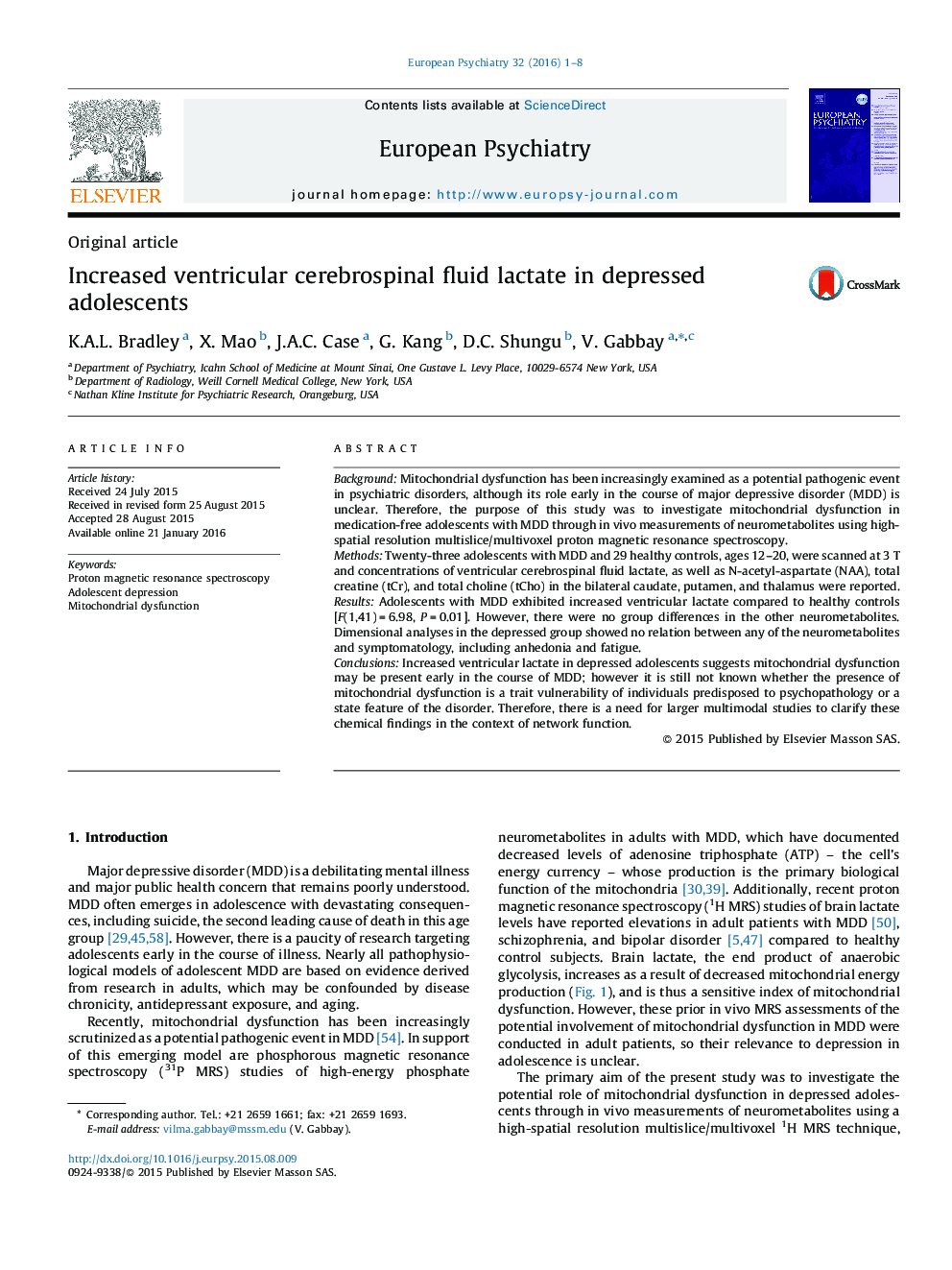| Article ID | Journal | Published Year | Pages | File Type |
|---|---|---|---|---|
| 4183572 | European Psychiatry | 2016 | 8 Pages |
BackgroundMitochondrial dysfunction has been increasingly examined as a potential pathogenic event in psychiatric disorders, although its role early in the course of major depressive disorder (MDD) is unclear. Therefore, the purpose of this study was to investigate mitochondrial dysfunction in medication-free adolescents with MDD through in vivo measurements of neurometabolites using high-spatial resolution multislice/multivoxel proton magnetic resonance spectroscopy.MethodsTwenty-three adolescents with MDD and 29 healthy controls, ages 12–20, were scanned at 3 T and concentrations of ventricular cerebrospinal fluid lactate, as well as N-acetyl-aspartate (NAA), total creatine (tCr), and total choline (tCho) in the bilateral caudate, putamen, and thalamus were reported.ResultsAdolescents with MDD exhibited increased ventricular lactate compared to healthy controls [F(1,41) = 6.98, P = 0.01]. However, there were no group differences in the other neurometabolites. Dimensional analyses in the depressed group showed no relation between any of the neurometabolites and symptomatology, including anhedonia and fatigue.ConclusionsIncreased ventricular lactate in depressed adolescents suggests mitochondrial dysfunction may be present early in the course of MDD; however it is still not known whether the presence of mitochondrial dysfunction is a trait vulnerability of individuals predisposed to psychopathology or a state feature of the disorder. Therefore, there is a need for larger multimodal studies to clarify these chemical findings in the context of network function.
